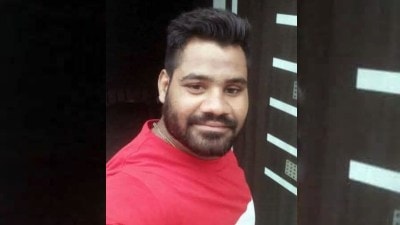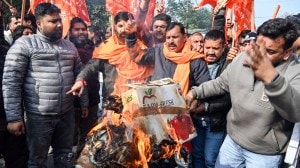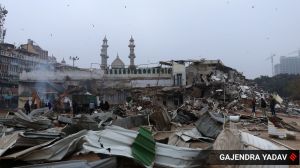A show-stopper
Last Saturday, Mee Nathuram Godse Boltoy was banned. Both its Gujarati and Marathi versions. The diktat by the state government has raise...

Last Saturday, Mee Nathuram Godse Boltoy was banned. Both its Gujarati and Marathi versions. The diktat by the state government has raised a hue and cry in the world of theatre. Cries of the violation of freedom of expression have been raised, and the fraternity has decided to observe July 17 as a black day, every year. On July 29 this year, no plays will be staged and theatres will wear an abandoned look.
But banning plays by the government is not new. In fact, the first time it happened dates back to the pre-Independence days. Popularly considered the first historically-known instance of banning a play in Mumbai, Natyaacharya Krishnaji Prabhakar Khadilkar8217;s Kichakvadh opened in Mumbai in 1935. It was doing quite well till the British government caught a whiff of what it regarded quot;objectionablequot;. Khadilkar had used Kichak, an ill-tempered, uncultured figure from the Mahabharat whom Bheem killed, as a symbol of one of the most influential and high-handed British governors, Lord Curzon.quot;The troupe had no alternative but to pack up for ever,quot; says the noted drama critic, Kamlakar Nadkarni.
The same fate was in store for the performance of yet another play at the time. Agryahoon Sutka Escape from Agra. A rather harmless play, the British government thought otherwise as they objected to the detailed portrayal of Chhatrapati Shivaji Maharaj and his urge to free8217; his people from the atrocities of Mughal rule.
All that changed post Independence. Ridiculing the British and ranting against the Raj was fun but showing Indian historical figures in bad light was a criminal act. At least the self-proclaimed culture police thought so when they saw Vijay Tendulkar8217;s Ghashiram Kotwal 1969-70.
Tendulkar refuses to comment on it but the controversy is well known. The protagonist of the play was a man who belonged to an economically backward section. Nana 8212; a character developed heavily on Nana Phadanvis an administrator in the court of the Peshwas 8212; appoints Ghashiram as akotwal only because he wants to get intimate with the police officer8217;s daughter. People objected to the depiction of Phadanvis as a philanderer who squandered the kingdom8217;s wealth on his numerous liaisons. The play was called a historic-non historic play8217;. But that tag could not help the play escape the wrath of the politically sensitive. quot;The opposition to the play was spearheaded by none other than Pramod Navalkar. It got sanction for staging much later 8212; only after the producer agreed to read out a synopsis clarifying that the characters in the play were fictitious,quot; says Nadkarni.
Yet, there is hope for the world of theatre. Some politically-sensitive plays 8212; with the potential to create havoc 8212; have escaped the evil eye of the thought police. For instance, Amol Palekar8217;s Juloos was staged during the Emergency. Even though it was a bold statement against the establishment. quot;I had opposed the Emergency very strongly and openly. I had risked everything,quot; says Palekar. Somehow, Mrs IndiraGandhi didn8217;t see it that way and Palekar was spared a visit to jail.
Close on the heels of Juloos, came yet another political satire, Shafad Khan8217;s Mumbaiche Kawle The Crows of Mumbai. It was a scathing attack on the party system and the tendency of political parties to work towards their own benefit. Somehow, the Censor Board let this one pass too.
Even today, there are plays like Bakri and Udhvasta Dharmashala that compete for place on the stage of the politically provocative. But then, that8217;s what democracy is, probably, all about.
- 01
- 02
- 03
- 04
- 05































